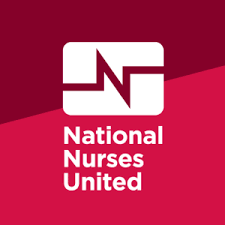Healthcare costs have risen dramatically in recent years, and are expected to increase as much as 8.5% in 2024. To sustain health benefits at the current level, some unions are exploring alternatives to the traditional provider network.
Hospitals and health systems partner directly with Labor
Increasingly in today’s market, we are seeing hospitals and health systems who have cut out the insurance carrier middleman to go direct to health plan sponsors. In fact, Labor funds who have direct contracts with these health systems often experience improved savings and health outcomes and access to simpler, better and more coordinated care.
However, when deciding which health systems to partner with, there are critical factors for plan sponsors to weigh. Some hospitals and health systems have a history of complicated relationships with Labor, including with their own union employees that should not be ignored. That’s why it’s important to evaluate your potential provider partner before entering into a direct partnership.
Five important questions to ask when choosing your health system partner
- What is the health system’s long-term history with Labor
This could be the most important question for union leaders when contemplating partnering directly with a health system. A strong historical commitment to Labor can indicate a deep-rooted understanding and support of Labor, showcasing a proven track record of collaboration and trust. Does the health system have a history of good relationships with Labor unions and Labor leaders in their communities? Do they historically hire Labor contractors for facility constructions, renovations and other worksite projects? Is their own staff unionized? Has the health system employed union-busting tactics? Have they employed temporary staff to undermine negotiation processes? The good news is that media coverage of employers’ disagreements with unions is widespread. A simple Google search can often help determine how well a potential partner has treated Labor historically. Health systems newer to engaging Labor might lack the nuanced understanding and perspective necessary to provide the level of service, stability and trust to support Labor health needs.
- Does the health system have an oversize share of the local or regional market?
This can be more difficult to research, but a Congressional Budget Office Study found that the market power of hospitals and provider groups is a key factor in determining hospital prices. Health systems with a higher market share or higher market concentration are often responsible for driving up prices above the level that would exist in a perfectly competitive market. In contract negotiations with such players, it’s important to have an advocate such as a network administrator with experience supporting Labor by your side.
- Does the health system have a history of higher prices compared to other health systems?
A 2024 report by PatientRightsAdvocate.org shows large variations in prices for patients between hospitals, and depending on their coverage, at the same hospital. This report can be a valuable tool as you are negotiating your partnership and setting expectations for savings. Even if a Labor union has worked with a particular health system in the past, they may not have felt the impact of its high prices if only a relatively small share of members utilized the health system’s providers and facilities. When you contract directly with a health system, however, utilization of that health system goes up, which means you are more likely to be impacted by its higher prices.
- Does hospital leadership salary far exceed that of the average worker?
Comparisons vary widely but can provide important information for unions considering contracting directly with a health system. According to a 2022 analysis of more than 1,000 hospitals by the Lown Institute published in Health Affairs, nonprofit hospital executives on average made eight times the wages of workers without advanced degrees. Some hospital CEOs received pay about twice the rate of these workers while others were paid as much as 60 times more. This may be relevant when evaluating how equitably a health system treats their employees – and if they would be a good partner to Labor.
- Will contracting with the health system limit choice for your members?
It’s important to choose a flexible partner with solutions that fit your health fund’s requirements and your members’ needs. Otherwise, your members may be stuck with a one-size-fits-all approach that confines them to a specific geographic area, offers only a limited/narrow network, imposes higher costs for providers outside of the health system or creates other barriers to choice and access.
Finding the right network partner for your health plan can be challenging, especially when it comes to navigating the ins and outs of partnering with health systems and provider groups. That’s where a trusted third-party administrator can help.
With more than 30 years serving Labor health plan sponsors and their members and administering a provider network, MagnaCare can help union leaders consider all their health plan options transparently and impartially. If you would like to learn how we can help your make the most out of a direct contract, please contact info@magnacare.com.






